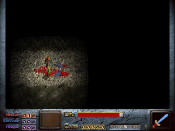Reply to Re: Millimeter talks about copyright
If you don't have an account, just leave the password field blank.
You just said the same thing I did?
No, I didn't. You said it's about making a second copy of something they own. I say it's about making copies of things they don't own. In particular, putting songs that were (illegally) downloaded from the internet on the CD.
When you purchase a record/CD/Cassette/Download; you do not own the song/program that is on it, you own the piece of plastic and a license to use it on one device at a time. If you want to own 2 or say 100,000 copies, the presumption is you would purchase 2 or say 100, 000 copies. Either way, it's still not legal to make a free copy to enable you to use it as if you had purchased 2. The fee for blank media reflects that people are willing to break the law, knowing they aren't going to be fined for such a small amount, whereas a several million people each stealing $5 worth of product, is still a lot of lost revenue.
The exceptions for personal use relate partially to the fact that it would be cost prohibitive to sue somebody for making one illegal copy which they gave to their brother, for example. There are also some things that "could" be considered a public performance and personal use, depending on which side of the money you are on. Having a family reunion could be one of these where a family member playing a cd would not be trying to earn a profit from doing so, but if a hired DJ or Band played the music, it would be a payable use.
Aren't those sort of things abuse of monopoly and therefore illegal?
Yes, but comparing the cost of enforcement to the lost tax revenue is part of the problem. Also, where the big corporations have a well funded Legal team on staff, it doesn't take long to out spend someone of "modest means".
Warner Brothers and Sony Entertainment, are getting out of the business of making records. They have also realized that there is a significant revenue stream from on-line sources, including Vevo, Itunes, and their competitors. Because the Lables typically own or control 2-3 of the possible royalties earned from an artist's song being performed, they have contractual arrangements with all of the Online providers that assures them a portion of the revenue from every purchase that can be attributed to their catalog of Artists.
No, I didn't. You said it's about making a second copy of something they own. I say it's about making copies of things they don't own. In particular, putting songs that were (illegally) downloaded from the internet on the CD.
When you purchase a record/CD/Cassette/Download; you do not own the song/program that is on it, you own the piece of plastic and a license to use it on one device at a time. If you want to own 2 or say 100,000 copies, the presumption is you would purchase 2 or say 100, 000 copies. Either way, it's still not legal to make a free copy to enable you to use it as if you had purchased 2. The fee for blank media reflects that people are willing to break the law, knowing they aren't going to be fined for such a small amount, whereas a several million people each stealing $5 worth of product, is still a lot of lost revenue.
The exceptions for personal use relate partially to the fact that it would be cost prohibitive to sue somebody for making one illegal copy which they gave to their brother, for example. There are also some things that "could" be considered a public performance and personal use, depending on which side of the money you are on. Having a family reunion could be one of these where a family member playing a cd would not be trying to earn a profit from doing so, but if a hired DJ or Band played the music, it would be a payable use.
Aren't those sort of things abuse of monopoly and therefore illegal?
Yes, but comparing the cost of enforcement to the lost tax revenue is part of the problem. Also, where the big corporations have a well funded Legal team on staff, it doesn't take long to out spend someone of "modest means".
Warner Brothers and Sony Entertainment, are getting out of the business of making records. They have also realized that there is a significant revenue stream from on-line sources, including Vevo, Itunes, and their competitors. Because the Lables typically own or control 2-3 of the possible royalties earned from an artist's song being performed, they have contractual arrangements with all of the Online providers that assures them a portion of the revenue from every purchase that can be attributed to their catalog of Artists.









